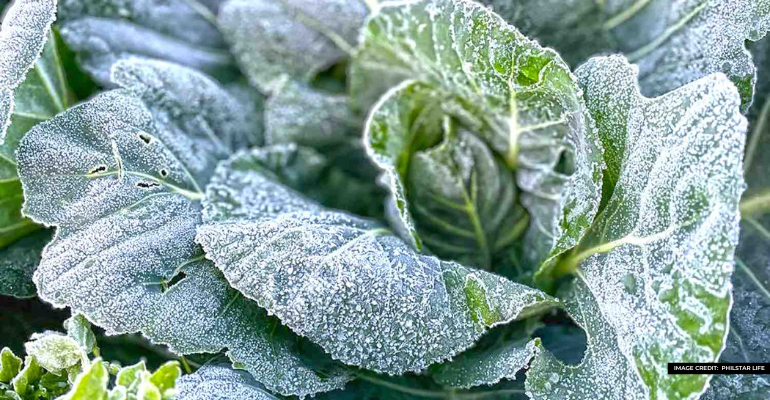Many plants, including fruits and vegetables, were filled with ice on Friday morning, January 12, after frost hit some towns in Benguet.
Atok town in Benguet province encountered a temperature decrease, leading to frost affecting several highland plants in the region, including vegetables, early this morning.
Paoay resident and farmer PJ Haight shared images and videos depicting the impact of “andap” (frost) on vegetables and other plants during Friday morning in Atok that caused plants to freeze.
He mentioned that this happened as the temperature dipped to 8 degrees Celsius. Nevertheless, he indicated that this is a regular incident that farmers can effectively handle to prevent the adverse effects of frost.
Farmers from the highlands and northern Benguet emphasized that occurrences of “andap” should not be exploited as a reason to raise the prices of highland vegetables in retail markets, as the situation is normal for them and they can handle it to deliver more fresh produce in the whole country.
According to Haight, the occurrence is considered normal. Farmers, accustomed to it, have already adapted and possess the knowledge to manage such situations to prevent damage to their crops. The “andap” season in Benguet is anticipated to escalate as temperatures continue to drop, particularly towards February.
As farmers announced that the prices of vegetables in markets will not be affected, it is also expected that the numbers of fresh produce can decrease when not handled well by the farmers. It was January last year when frost also hit Benguet, resulting in a slight decrease of fresh produce from the said province.
Frost or “Andap” is a thin layer of ice on a solid surface, which forms from water vapor that deposits onto a freezing surface. Frost forms when the air contains more water vapor than it can normally hold at a specific temperature.
Sources: (1)
Also Read: Baguio City under acute gastroenteritis breakout caused by contaminated water

Leave a Reply